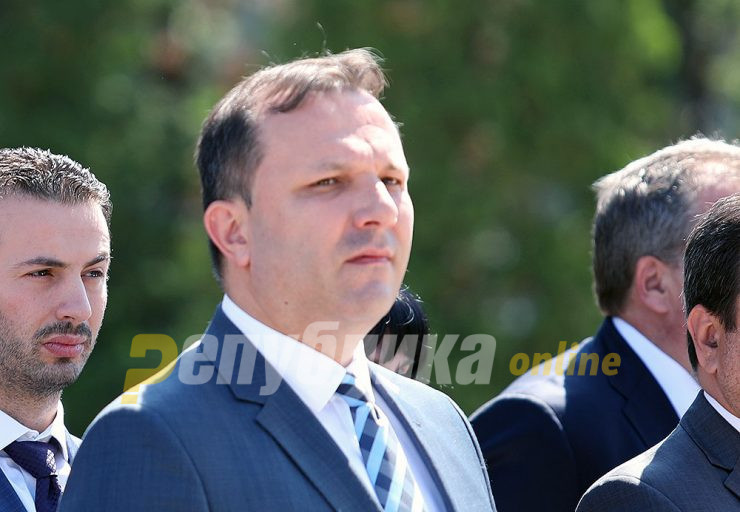Interior Minister Oliver Spasovski said that it is important to resolve the racketeering scandal, after his party colleague Frosina Remenski became the first top SDSM official to be charged in the case. Spasovski sought to portray the growing corruption allegations against SDSM officials, and SDSM affiliated Special Prosecutor Katica Janeva as evidence that the rule of law is working.
It is very important to bring this case to a conclusion. Anyone who is in a way suspect should be brought before the face of justice and the suspicions proven, so we can show that the Republic of “North” Macedonia has capacity to deal with these issues. The party will discuss the issue and our relationship to Remenski and her case. I want to respect the presumption of innocence but we also have to make appropriate decisions within the party. I expect the institutions of the state to function and that anyone involved in any case be held responsible, Spasovski said in an interview with the MIA news agency.
Remenski was ordered into house arrest earlier this week after months of public allegations about her ties with showman Bojan Jovanovski – Boki 13 and his bogus charity that collected at least a million eur from businessmen. The money was paid either as extortion under pressure from Government officials, due to promises of lucrative Government linked real-estate development deals, or a mixture of both.
The opposition VMRO-DPMNE Hristijan Mickoski said that the charges against Remenski stem not from some desire to bring justice, but are linked to an intra-SDSM fight between competing factions who are trying to control the security services.
In his interview, Spasovski also expressed concern about the threat of Islamists returning to Macedonia as a result of the Turkish offensive in Syria. Spasovski confirmed that there are Macedonian citizens residing in camps for former ISIS fighters in Syria, but would not disclose their numbers, except to say that seven of them were returned to Macedonia in cooperation with Western powers active on the ground.
Radicalized people can be very dangerous for their surroundings, they participated in fighting, have been through combat training and that is all being taken into account with regard to the control over them upon their return. Whether they will be returned to some other camp or to the country, we had several operations against returnees from Syria, Afghanistan and Iraq. It’s a serious challenge for any country, said Spasovski.




Comments are closed for this post.